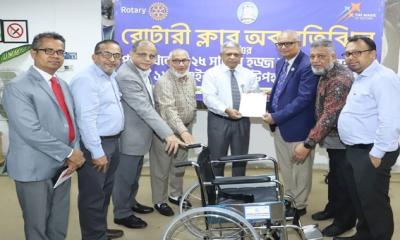-Antibiotic resistant in 48% of cases
-Hand washing can reduce infection by 50%
Germs is everywhere, all around the place even the cleanest place has the possibility of germs. And the hospital is fertile land of germs and germs related diseases.
Doctors recommend to eat different types of fruits for the better health of the patient. But a study has shown that fruits collected from the hospital area are not washed well in clean water and many are getting infected with various germs. In this research of local doctors, people are getting infected with 27 types of germs.
A group of doctors from Dhaka Medical College Hospital conducted this research on the infection of germs through fruits in the hospital area.
It was published in December 2022 in the African Journal of Microbiology Research. It has been found that 48 percent of the 27 types of bacteria that are infecting the fruit collected from around the hospital are resistant to antibiotics.
Researchers blame the impact of poor infection prevention and control (IPC) systems and misuse of antibiotics in hospitals as the cause of fruit-borne infections. To avoid risk, they have advised all concerned including the patients and relatives who go to the hospital to wash the fruit well.
Dr. Kakali Halder, Assistant researcher and assistant professor of microbiology department of Dhaka Medical College said that, “Hospitals have a lot of pathogens. Here, everyone including doctors-nurses, ward boys, patients, relatives of patients are spreading germs in different ways.
Kakali Halder said, many times doctors touch another patient without washing their hands after seeing one patient due to busy schedule. Each patient is infected with a different pathogen.
So one patient's germs are infecting another. Apart from this, other germs are also being transmitted by touching the hands of relatives of patients coming from outside or breathing.
Assistant Professor Dr. Kakali Halder said, after 72 hours of hospitalization, the patients were tested and it was found that they are getting infected again by another type of bacteria after being admitted to the hospital. On the one hand, it takes longer for patients to recover. On the other hand, medical costs and the risk of death are increasing.
Basically, this study was conducted to find out the sources of infection.
Kakali Halder said, from April to September 2021, fruits sold in various shops around Dhaka Medical were collected. Patients who come to this hospital regularly eat the fruit there. These fruits are washed in water and that water is given to the laboratory for testing. Thus a total of 35 samples were collected.
Laboratory tests showed that all 27 samples tested positive for disease-causing bacteria. Different antibiotics are effective for 52 percent of these bacteria, but no antibiotics work for 48 percent.
How can fruit be sterilized?
Dr. Kakali Halder said, after washing with running clean water for a long time, there will be no possibility of germs. However, it is best to wash and cut the fruits from home as the hospital facilities are less. The most important thing is to wash your hands and eat the fruit. Hand washing alone can reduce infection by 50 percent if done properly. But most people don't understand that.
Professor Sajjad Bin Shaheed, Head of Microbiology Department of Dhaka Medical, said that the entry of antibiotic resistant bacteria into the body can lead to infection in the urinary tract or respiratory tract, antibiotic resistant diarrhea or various infections in the blood.
Sajjad Bin Shaheed said, when the antibiotic resistance genes spread in the environment, they are mixed in various ways as a result of the store. The germ enters the body of those who eat this fruit. By eating that fruit, they will become resistant to certain antibiotics. Antibiotic resistant bacteria on fruits are usually found in hospitals.
Assistant Professor Dr. Kakali Halder said, "The germs in the hospital are much more dangerous than the germs spreading in the community." This is why we discourage children and elderly people from coming to the hospital without treatment. Because they are at high risk of infection.
Kakali Halder said that patients and their relatives should develop the habit of washing hands and using masks as often as possible while staying in the hospital. The area around the patient's bed should be kept clean. Not more than one relative of the patient should be in the hospital. Apart from this, it is important to wear a mask before entering the patient's room, not to walk around the market and go to the patient's room, refrain from hugging the patient, shaking hands with the patient or touching the patient's body, and refrain from sitting on the patient's bed. If you want to touch the patient for any reason, you should clean your hands with soap or sanitizer before and after. Stay as far as possible from the patient undergoing surgery. Can't be touched. Overcrowding in particular is very harmful for the surgical patient. This increases his risk of infection.
The city area’s hospital and the fruit shops beside the hospital and every possible outer shop is a possible place for spreading the germs. Doctor recommend to be safe for own and the for the other, especially for the betterment of the child and the old one.
ZH






